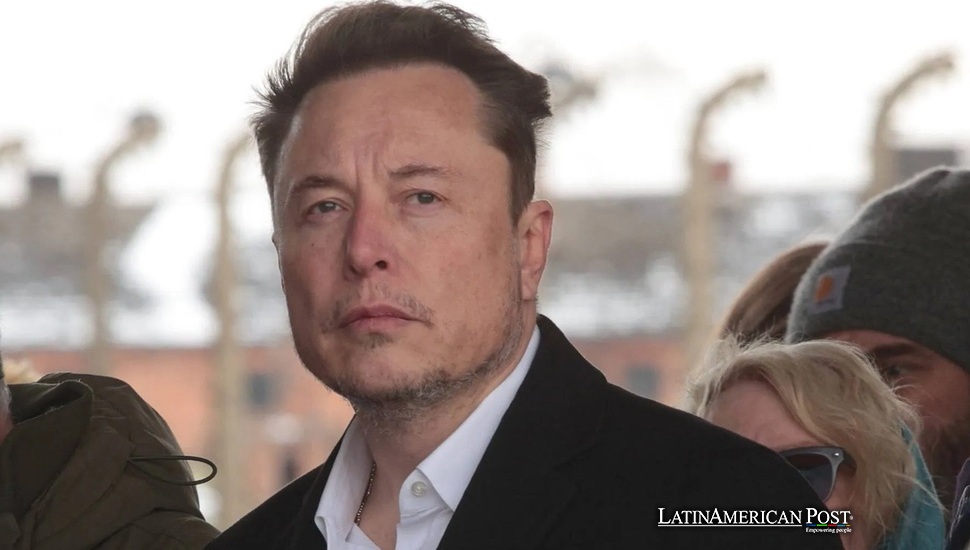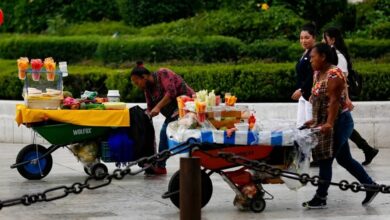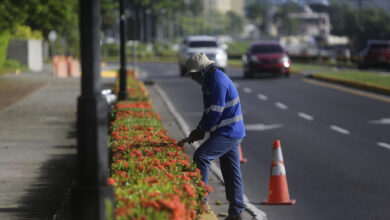Latin American Undocumented Workers Built Musk’s Texas Factory, Now He Wants Them Gone

As Elon Musk publicly promotes a crackdown on undocumented migrants, scores of Latin American workers—many lacking legal status—have helped build his ambitious Texas ventures. Their accounts, chronicled by Bloomberg Businessweek, highlight a stark disconnect between Musk’s rhetoric and reality.
The Paradox of Musk’s Migrant Labor
For years, Elon Musk presented himself primarily as a futurist entrepreneur who viewed borders as barriers to innovation. Yet, in recent times, he has become a prominent voice championing the strict policing of boundaries and expulsion of undocumented workers—a stance he shares with leaders such as former President Donald Trump. Meanwhile, Bloomberg Businessweek has reported that countless Latin American migrants without proper work authorization toiled on Musk’s mega-construction sites in Texas, among them Tesla’s massive gigafactory and SpaceX installations. The central contradiction emerges: Even as Musk denounces undocumented labor and claims to fear an unchecked influx of migrants, his empire has depended heavily on their work.
As Bloomberg Businessweek recounts, these workers came from Honduras, Colombia, and across the Americas. Some risked crossing borders under treacherous conditions; others had resided in the US for years without documentation. Often, they used borrowed or fabricated paperwork to pass muster with subcontractors. The companies that employed them provided minimal protections: meager wages, insufficient safety gear, and virtually no job security. Many toiled through twelve-hour days of heavy lifting, cleaning, or specialized tasks like welding, rarely benefiting from the prestige or pay scale that Musk’s enterprises convey to highly skilled engineers. Yet these same workers enabled the rapid expansion Musk demanded.
The irony is impossible to ignore. While Musk wields a vast platform to rail against unauthorized migration and push nativist talking points, the infrastructure that buttresses his multibillion-dollar empire is built in part by the very people he vilifies. The migrants who vacuumed floors, laid concrete, and handled toxic materials have seen firsthand the distance between Musk’s professed ideals and on-the-ground practices. Their experiences, recounted in detail by Bloomberg Businessweek, reveal a businessman who publicly calls for tightened borders while reaping the benefits of an underpaid, easily exploited workforce.
Exploitation on the Construction Frontlines
In an investigation by Bloomberg Businessweek, workers described days that stretched up to twelve hours under the punishing Texas sun, with temperatures reaching well over 90°F. Protective gear—gloves, face masks, and eye shields—often went missing. In some cases, water breaks were so limited that laborers resorted to sneaking sips from an on-site station to avoid reprimand. Migrants spoken to by the magazine, including one woman identified as Cristy, provided accounts of near-fainting from heat and dust exposure. Some recounted injuries that received no medical follow-up beyond a few sympathetic words from coworkers.
Cristy, a Honduran woman in her mid-50s, joined a cleaning subcontractor affiliated with the Tesla site in late 2021. She vacuumed and swept dusty corridors, took out trash, and scrubbed toilets for $16 an hour. She had no union representation and little leverage to advocate for safer work environments. As the Bloomberg Businessweek piece recounted, complaining about work conditions was nearly impossible. Workers like Cristy feared losing their jobs and, even more so, the specter of deportation. When she suffered a bout of heatstroke during an especially grueling cleaning shift, her supervisor allegedly fired her after a heated dispute. Only later—once she’d realized she had some legal recourse—she dared to file an OSHA complaint, aided by a local worker advocacy group.
Another laborer, “Samuel,” told Bloomberg Businessweek that he helped build sections of a SpaceX outpost near Austin. As Musk’s anti-immigrant sentiment grew sharper, Samuel felt torn. He was grateful for the paycheck but confused about why Musk appeared to “hate” migrants while depending on them to hit deadlines and bring ambitious concepts to life. When rumors emerged that workers might need state-issued IDs to continue at the site, Samuel and his coworkers panicked, aware that many would be unable to produce the needed documents. He said that requirement never fully materialized, suggesting that managers recognized the project’s dependence on undocumented labor.
Though some of Musk’s contractors told Bloomberg Businessweek they regularly check worker credentials through E-Verify, not all do so consistently. Employers in the middle tiers of contracting may not want to press the issue if workers turn up on time and keep the project on schedule. Labor brokers also factor into the complexity, shuttling new hires from the Rio Grande Valley and other regions along the US-Mexico border. As with many large-scale construction projects, layers of subcontracting can obscure responsibility, making it difficult to pinpoint who is ultimately accountable for labor abuses.
Musk’s Rising Political Persona and Anti-Immigrant Rhetoric
In the years immediately after arriving in Texas, Musk built a public image as someone who creates jobs and as an innovator who opens new opportunities in the Lone Star State. At that time, he rarely took part in intense political debates. However, he adopted a polarizing position, supported strict immigration policies, and formed ties with right-wing figures. According to quotes documented by Bloomberg Businessweek, Musk publicly accused local authorities of failing to vet migrants and lamented that unauthorized arrivals supposedly benefit from government services at taxpayers’ expense.
In late 2023 and 2024, as Musk began forging closer ties to influential politicians who demanded border crackdowns, the presence of undocumented workers on his construction sites didn’t wane. Instead, multiple laborers told Bloomberg Businessweek that they continued to see large crews of unauthorized migrants hired through subcontractors, sometimes paid below standard union rates. Some worked overtime but got no extra pay or hazard bonuses for dangerous assignments. They risked being fired if they refused these terms or raised safety concerns.
Critics argue that Musk does not simply pretend to support stricter immigration laws. He gave millions to political campaigns that supported mass deportation and pushed for laws to lower the number of asylum seekers. Whether Musk truly supports limiting immigration or uses it as a political tactic to gain power in Washington remains unclear. Yet a conflict exists: Even as he condemns migrant entries; his companies profit from a cheap, insecure workforce – mostly Latin American and largely undocumented.
The situation mirrors a wider trend in American industry where companies claim strict compliance yet ignore the day-to-day realities of laborers at their work sites. Musk is the most famous example, combining a sensational image with great wealth and global influence. By touting the need for punishing border enforcement while relying on undocumented labor behind closed doors, Musk, and his affiliates illuminate an uncomfortable truth at the core of American capitalism: The system persistently depends on workers it categorically refuses to treat as equals.
Undocumented Workforce: Invisible Yet Indispensable
For decades, the United States has leaned on undocumented labor to fill roles in agriculture, meatpacking, manufacturing, and construction. As Bloomberg Businessweek underscores, Texas is no exception. Whether tending farmland in blistering heat or assembling multi-million-dollar facilities for top-tier corporations, immigrants have become the bedrock of entire industries. Politicians and tycoons alike—many of whom speak harshly about immigration—rarely acknowledge the critical role of the very workforce they scapegoat.
In the context of Elon Musk’s empire, the question arises: Why are these individuals, whose labor is integral to building Tesla’s gigafactory and SpaceX’s expansions, deemed threats or freeloaders when politicians or businessmen address the public? One answer emerges from the narratives gleaned by Bloomberg Businessweek. Migrants are convenient scapegoats, their existence overshadowed by sensational claims of criminality and “border crises.” Meanwhile, they keep the wheels of progress and profit turning by doing backbreaking tasks for wages many citizens would reject.
Contradictions increase when you note that Musk’s early career was shaped by his experience as an immigrant from South Africa. He denies claims he worked illegally in the US. His personal story shows the difficulties of moving between borders. He has repeatedly argued for visas facilitating high-skill labor, extolling the virtues of “the best and brightest” who arrive to power technology revolutions. Yet the quiet army of manual laborers—those lacking specialized degrees but bringing essential trades—rarely receives the same championing in his speeches or social media posts.
Musk’s constant impact in Washington, DC, further adds to the tension. Now known as a political power broker, he uses his charity work and business success to change rules in the capital. His view on immigration, formed by alliances with figures like Trump, underlines the cultural fights across the United States. The workers in his factories, who risk deportation at any moment, watch him criticize their mere presence on social media.
The stories of Cristy and others highlight a deeper, more structural irony. Despite suffering personal and workplace hardship, many undocumented laborers remain proud of their contributions. They note that “someone has to do the work” and that corporations depend on them to maintain momentum in a competitive global market. As one laborer told Bloomberg Businessweek, they believe “the powerful see us as easily replaced,” which only emboldens exploitative practices.
All worker quotes, interviews, and detailed accounts in this opinion piece are sourced from Bloomberg Businessweek’s reporting, as documented in Julia Love’s article and additional investigative materials shared during a Live Q&A. Bloomberg Businessweek’s rigorous coverage of these experiences provided invaluable insights into the complexities of undocumented labor at Elon Musk’s Texas operations.
Musk’s mixed stance shows a recurring conflict in Latin America’s ties with well-known entrepreneurs—especially those who act as progress supporters yet stir up backward views on migration. This conflict goes beyond Musk and appears across the US economy. But Musk stands as a symbol: a billionaire who asks for tighter border controls even as he earns from men and women whose weak position lets them work cheaply.
Also Read: Mexico Nissan Alliance Uncertain as Automaker Faces Worldwide Headwinds
If there is any positive aspect, it might stem from the public seeing more cases like Cristy’s. Advocacy groups, unions, and progressive lawmakers see an opening to pressure corporations to improve workplace conditions and to remind consumers where their “innovations” come from. The question is whether the moral dissonance can be resolved—whether a titan of industry like Musk can truly face the reality that his fortune is partly built on the labor of the people he denounces as “illegals.” Until that reckoning arrives, the men and women who cross borders to build the future may continue to see themselves treated as invisible, even as they construct what Musk hails as tomorrow’s greatest achievements.




